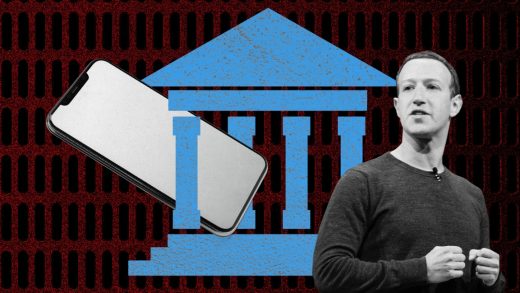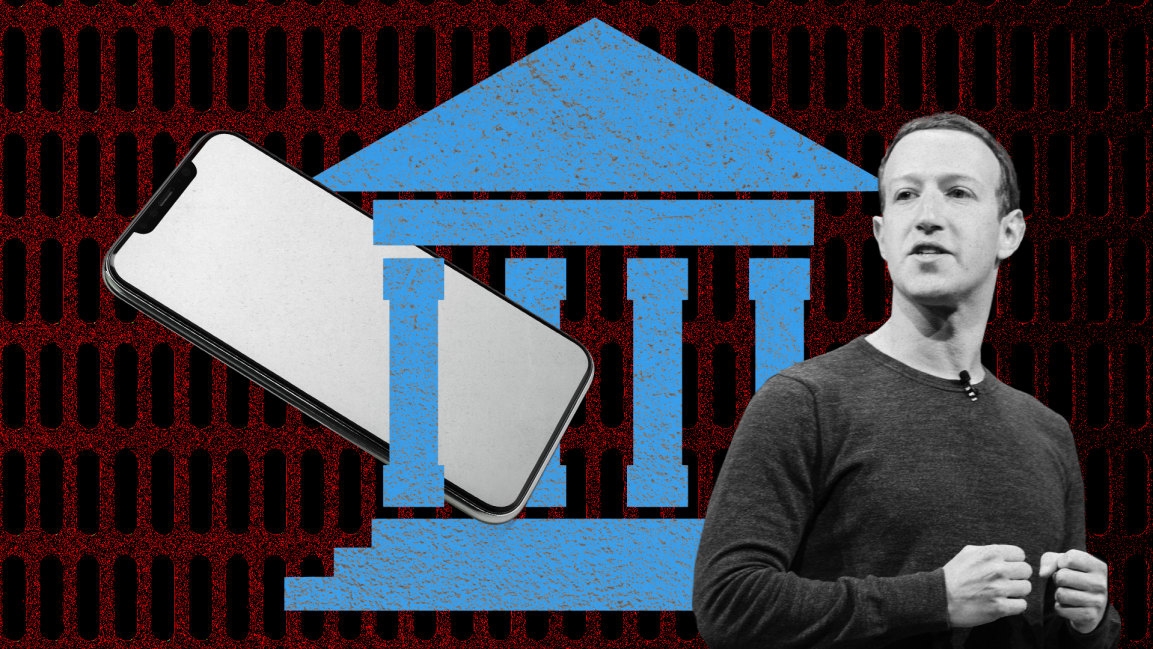These are the key arguments in the antitrust case against Facebook
December 11, 2020
The Federal Trade Commission and the state attorneys general have a good shot at proving Facebook is a dangerous monopoly that should be broken up. But it’s going to take some big-league lawyering, and a lot of time and money, to get it done.
The FTC, and attorneys general from 48 states, the District of Columbia, and Guam filed twin antitrust suits in the Federal District Court of the District of Columbia on Wednesday. They allege that Facebook’s acquisitions of Instagram in 2012 and Whatsapp in 2014 were motivated by a desire to eliminate two potential competitors from the marketplace, and resulted in a social networking marketplace that lacks choice and threatens consumer privacy. The plaintiffs ask the court to force Facebook to sell off Instagram and WhatsApp, a drastic move of the sort that courts have traditionally been hesitant to order in previous antitrust cases.
These are the main points of contention that will ultimately decide the case.
Playing defense
Before potential remedies such as breaking up Facebook even come into play, the federal and state officials behind the suits must start by convincing the court that the company made its acquisitions not primarily to improve the products of the acquirees, or its own existing products, but rather to remove potential threats to its dominance over social networking.
Proving that won’t be easy. But the FTC and AGs present a compelling case in the suit, mainly by letting Facebook’s own words tell the story. George Washington University law professor William Kovacic tells me such testimony is often a crucial deciding factor in antitrust cases, and that it was the internal statements of Microsoft executives that sealed that company’s fate in the landmark antitrust case over Internet Explorer in the 1990s. (That case resulted in an order to split the company in two, though it was overturned on appeal and Microsoft eventually agreed to a less dramatic settlement.)
“The FTC and state AGs develop a powerful narrative about the events of 2012 and 2014 by presenting high-level communications from inside Facebook to spell out the company’s concern that Instagram and then WhatsApp would become competitive threats—even when Instagram and WhatsApp may not have known, but Facebook knew,” says Kovacic.
The FTC and state AGs reference a 2008 internal missive from Facebook CEO Mark Zuckerberg saying that “it’s better to buy than compete.”
That statement came a year after the launch of the iPhone. Facebook was famously slow to react to the mobile revolution by shifting its focus to smartphones. The suits suggest that Facebook’s main strategy for catching up was by buying, not building, mobile-first products such as Instagram and WhatsApp.
In an email from September of that year, Zuckerberg said, “In the time it has taken us to get ou[r] act together on this[,] Instagram has become a large and viable competitor to us on mobile photos, which will increasingly be the future of photos.” In a February 2012 email, Zuckerberg wrote that if Instagram is acquired by another company or left on its own, it might leave Facebook “very behind in both functionality and brand on how one of the core use cases of Facebook will evolve in the mobile world.” He called this “really scary” and said Facebook should consider “paying a lot of money” for Instagram. In 2012 it did, at a cost of $1 billion. It paid $19 billion for WhatsApp two years later.
Since those deals, Instagram and WhatsApp have skyrocketed in popularity, giving Facebook control over four of the world’s most popular social media and messaging apps: Facebook, Instagram, and WhatsApp, along with Messenger, which was spun out of Facebook.
Proving harm
The court may well buy that Facebook acted defensively, but the plaintiffs also have to prove that real consumer harm was caused the company’s actions. That’s a tougher challenge, Kovacic says. The FTC and the state AGs will have to convince the court that social network users would have been better served if those companies had been left to develop on their own.
Kovacic says the court will have to believe that those smaller companies would have “become real alternatives for users, perhaps ones that offered better innovation, better features, and better privacy protections,” he says.
Both suits—the FTC’s and the state AGs’—focus on monopoly harms caused by Facebook’s Instagram and WhatsApp acquisitions. But the state AGs’ suit ventures into the harms to user privacy the acquisitions created, says Joel Mitnick, a former FTC trial lawyer and partner in Cadwalader, Wickersham & Taft’s antitrust group.
Because Facebook controls so much data, and so many kinds of data, Mitnick says, “it’s able to centralize and analyze it, and potentially use it in exploitative ways, or ways we don’t understand.”
But convincing the court that consumers would have been better off in a world where Instagram and WhatsApp compete with Facebook is an exercise in speculation, and it’s hard to prove speculation.
Facebook’s attorneys, Kovacic says, will seize on that, arguing: “How do we know that a reality that we don’t know is preferable than the one we do know?” Facebook will argue (and the state AGs acknowledge) that far from buying Instagram and WhatsApp and shutting them down, it “launched them into a much higher orbit and they’ve stayed there.” Instagram, for example, had 19 employees and no revenue when Facebook acquired it.
Facebook already said as much in its statement about the suit on Wednesday. “Instagram and WhatsApp became the incredible products they are today because Facebook invested billions of dollars, and years of innovation and expertise, to develop new features and better experiences for the millions who enjoy those products,” wrote VP and general counsel Jennifer Newstead.
The ultimate penalty: divestiture
The FTC and state AGs want the court to actualize the alternate reality they describe by forcing Facebook to spin off Instagram and WhatsApp. Those companies might then become true competitive alternatives to Facebook, the suits argue.
This could be hard. “Divestiture is a very difficult remedy to achieve,” Mitnick says. The courts have traditionally been hesitant to take companies apart, he explains, because they fear that it will not ultimately create a marketplace that’s better for consumers.
“Can the FTC and the states prove harm—actual harm or likely harm—and if yes, then will they be able to give the court confidence in a breakup?” asks Kovacic. “That, in my opinion, is the central point of contention in this case.”
It’ll also be incumbent on the plaintiffs to propose a detailed plan for the divestiture of Instagram and WhatsApp and present it to the court, Kovacic says.
Breaking up Facebook would likely be a 10-year process, and the social networking world might look very different in 2031.
The plaintiffs, the defendant, and the court are all aware that breaking up Facebook would likely be a 10-year process, and the social networking world might look very different in 2031. Today, we do it mostly on our phones. Who knows where it will happen in 10 years?
Meanwhile, Facebook has recently been integrating the products in its portfolio—for instance, by allowing Instagram users to exchange messages with people on Messenger and vice versa. Some watchdogs see this as an attempt to create a more unified business that will be harder to split up. For its part, Facebook says that it deeply integrated its acquisitions long ago—for instance, by running them in its data centers and incorporating Instagram into its ad platform. One way or another, any breakup would have to address the technical and logistical challenges of unbundling Instagram and WhatsApp into separate entities.
Is antitrust the answer?
The FTC and state AG cases are happening within a political environment that’s increasingly unfriendly to Silicon Valley, and to Facebook in particular. A staggering 223 million Americans use the social network, concentrating power over vast amount of news and information in the hands of one company. Add to this the fact that Facebook has played it fast and loose with user data privacy over the years, and has proved a useful platform for spreading disinformation and interfering in elections.
Government officials have expressed a desire to reign in the company in a number of ways, and it’s debatable whether antitrust is the best of them.
Sinan Aral, director of MIT’s Initiative on the Digital Economy, argues that forcing the breakup of one company won’t fix the underlying economics that lead to a beast like Facebook in the first place.
“What’s unique about the personal social networking market is that it runs on network effects, which tends to warrant market concentration,” Aral tells me. The network effect refers to the fact that social networks increase in value as more and more people participate. If you know all your friends are already on a service, you’re more likely to join—a dynamic that tends to result in a handful of behemoths rather than lots of smaller competitors.
Aral says the answer may lie in the government requiring Facebook to open up its borders. He says legislatures, not courts, should implement data portability requirements, so that social networks let users easily transfer their online identities to another network. In addition, a mandate for interoperability standards could let users of different networks easily send and receive posts, photos, video, and other social content to and from users on other networks. (He details these ideas in his new book, The Hype Machine.)
But Aral says that big breakups, like those the FTC and the states ask for, aren’t the answer to the many issues society has with Facebook in its current form.
“We have concerns over privacy, the spread of misinformation, election integrity, foreign interference in elections, concerns about the live streaming of the Christchurch murders in New Zealand,” Aral says. “Breaking up Facebook doesn’t address any of those problems.”
Fast Company , Read Full Story
(13)



